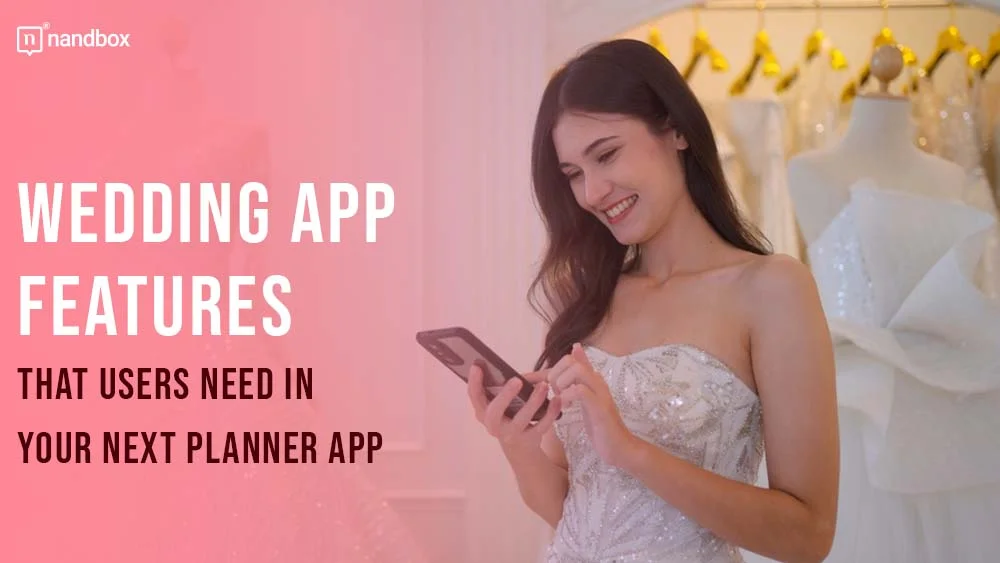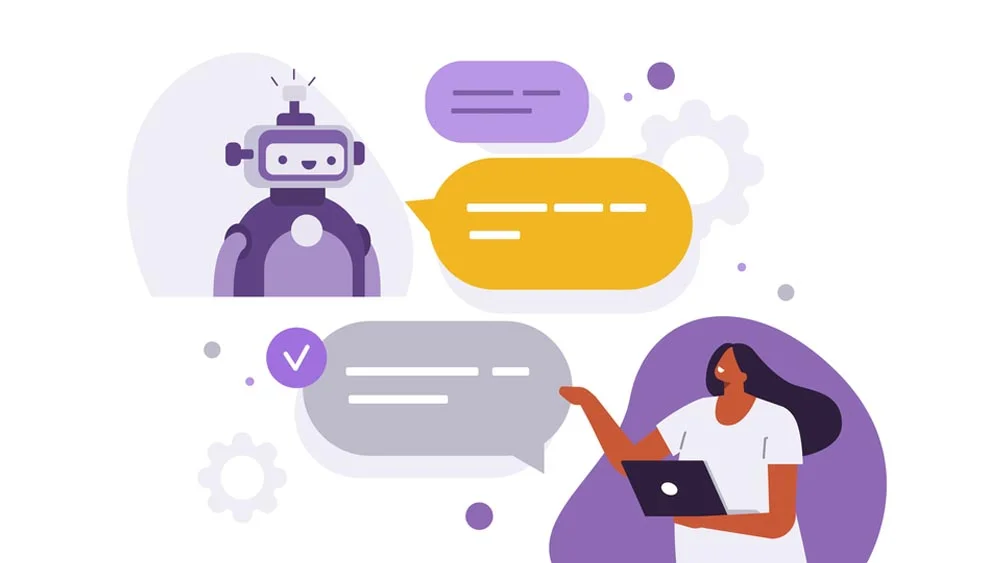Considering that around 64% of couples use wedding planner apps and approximately 90% of planning is done online, it’s no wonder these apps have established a $73.6 billion market and gained popularity globally.
One of the main reasons is that the landscape is transforming from the traditional approach to planning a wedding. While this won’t replace professionals like wedding planners, these apps are paramount in improving efficiency and results in this fast-paced world.
But what have wedding apps been doing to achieve such large-scale success? The answer lies in their consistent R&D investment and competitive strategies that help widen their application base with new products and services.
This article will explore these specific wedding app features that attract new users and why you should incorporate them into your next planner app!
10 Wedding App Features Every Planning App Should Have
Now that we’re aware wedding planner apps are on the right track to grabbing and keeping their users’ attention, it’s time to explore what features stand out the most.
Here are ten features that users absolutely love and why every planner app should have them:
Simplified, Personalized Onboarding
Every app user starts by registering on the app and providing mandatory details about themselves, their wedding date, preferences, contact information, etc. In addition, wedding apps also tailor their suggestions and features based on user preferences and conditions. Following onboarding best practices for new users creates genuine relationships and keeps them engaged; this increases user retention and activation rates.
Budgeting Tools
One of the first tasks in wedding planning is setting a budget. The app provides tools for couples to input their budget and allocate funds to different categories such as venue, catering, attire, and more. The app continuously tracks expenses, providing real-time updates on spending against the budget. This feature helps couples stay within their financial constraints.
Checklists and Timeline
While most planner apps have a to-do list feature, wedding apps offer a detailed checklist of tasks, their progress, and when they’re completed. Users planning an event will appreciate this feature because it helps them stay organized without skipping critical steps of the process. Plus, a checklist can help visualize task and deadline progressions, which motivates users to take action and stay on track.
Geolocation Tracking
The geolocation tracking feature allows couples to find appropriate vendors for the wedding and other services, such as caterers, makeup specialists, and so on. For instance, finding a venue in celebration hotspots like Long Beach is much easier with the help of geolocation tracking. Planner apps can use this feature to help them collect and analyze users’ locations, thus figuring out which retail or grocery store to focus on for better results.
Venue Management
An integral component of a successful wedding day is choosing the perfect location and venue for the couple to enjoy their big day. A great wedding app should function like a wedding planner, making wedding venues that fit a user’s expectations, aesthetics, size of venue, number of guests, budget, and other needs. Whether a couple wants to get married in a grand venue at Long Beach or wants a close-to-home experience with a simple Fullerton wedding, a wedding app should make it feasible for the couple to pick the best option.
In-App Communication
Real-time chat features allow seamless communication between vendors, planners, and couples. Event planner apps can incorporate this to connect and update everyone involved. The app can also send notifications for reminders, updates, or announcements so the user knows about any changes. For example, if a store shuts in 15 minutes, you can inform the users and offer alternative suggestions.
Vendor Listings
An extensive directory of wedding venues, vendors, florists, etc, is a common feature that allows couples to read reviews, visit vendor profiles, and view ratings. Other planner apps can incorporate information related to retail or grocery stores nearby based on the user’s to-do lists and location; this information ensures users make informed decisions about their purchases.
Vision and Mood Boards
Visual Inspiration is a great way to motivate users, so wedding apps allow couples to create mood or vision boards; this helps collect ideas and plan how they will work. Similarly, couples can also share these boards with those involved. Planner apps with this feature create an effective tool that helps users visualize their goals more clearly so they can take concrete action.
Integration of Third-Party Services
Wedding planner apps often integrate with third-party services to enhance functionality. This may include incorporating payment gateways for transactions, mapping services for venue locations, digital calendars to stay on top of tasks, and social media integration to share updates or images. This is especially useful for planner apps because it increases user acceptance since it allows easy application use.
AI Chatbot support
The feature of automated chat support using machine learning technology can help users and motivate them to use the app. For example, suppose a couple wants to find a pet-friendly penthouse venue in California for their wedding. In that case, AI chatbots can screen existing data and suggest places like The Oviatt, Swanner House, The Hills Hotel, etc. Thus, incorporating AI assistance ensures human-like interaction with users while offering quick, reliable answers when direct customer support isn’t available.
Customer loyalty program (CLP)
While this is an optional feature, a customer loyalty program is essential to attract users’ attention to your app and understand why it’s useful so they can recommend it to others. You can offer the app users occasional discounts or other offers to gratify them.
Why Should You Include These Features?
Wedding planner applications have transformed the planning process, improving efficiency, collaboration, and satisfaction for couples and industry professionals. Here are some key advantages of using wedding planner apps:
-
Simplified Planning
Having a single platform for all planning tools accelerates the process and helps users organize their work by setting schedules and checklists.
-
Enhanced Collaboration
Offering real-time communication like instant messaging or notifications between users and others involved keeps everyone in the loop. Such features enable collaborative decision-making, fostering good teamwork throughout.
-
Live Updates
Ensuring users receive real-time information about potential changes, reminders, and other updates about their tasks reduces the risk of miscommunications and allows you to resolve issues as needed. Similarly, notifying users about team attendance, completed task updates, etc., keeps them informed about what to expect.
-
Cost Control
Budgeting tools allow users to set financial goals, track them, and manage their expenses accordingly. Plus, features like expenditure updates, vendor or price comparisons, customer reviews, and access to vendor directories ensure users are aware of the cost and quality; this optimizes overall spending.
-
Less Stress
Task reminders and notifications prevent oversights to control last-minute hassle; this not only ensures everything gets done correctly but also reduces the stress associated with sudden issues. Plus, having checklists for each task keeps tabs on the entire process, ensuring nothing gets left behind.
-
Vendor Opportunities
Apart from benefiting the app’s users, including vendor features gives other local businesses a digital platform. It helps in expanding their products or services to a larger audience for better opportunities. Plus, allowing users to interact with vendors within the app enables effective communication to ensure everyone involved is satisfied.
Parting Thoughts
The success of wedding planner apps is primarily attributed to their innovative features that enhance user engagement, streamline the planning process, and facilitate collaboration among all parties involved. By incorporating tools such as budgeting, checklists, real-time communication, and AI support, these apps significantly improve the overall experience for people using planner apps. With the key features mentioned above, tweak and customize your next planner app to guarantee user satisfaction.





